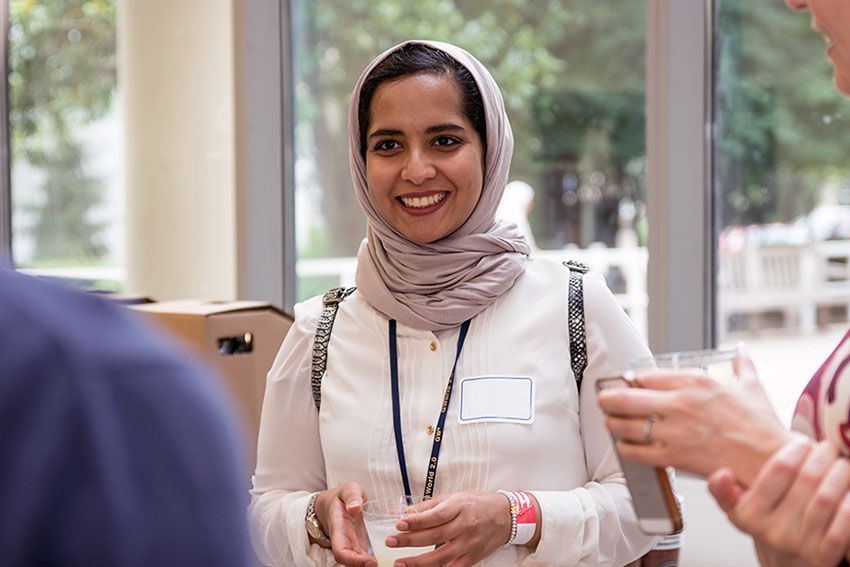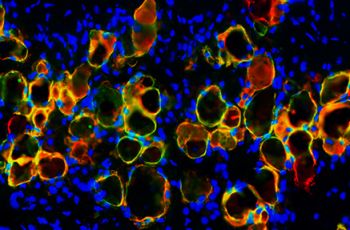
Interprofessional education, or IPE, has quickly risen to the top of the alphabet soup of medical acronyms. The idea is that as health care philosophy shifts to a patient-centered, team-based approach, effective communication between providers —physicians and specialists to nurses and pharmacists, for instance — improves the quality of care, increases patient satisfaction, and contains costs.
Within the George Washington University School of Medicine and Health Sciences (SMHS), IPE has become a cornerstone of training the next generation of health care professionals. As IPE has increasingly become a standard for evaluation with accrediting bodies, SMHS has incorporated more activities, such as workshops and simulations, to enhance teamwork into the MD, physician assistant, and physical therapy curricula.
The benefits of IPE, however, stretch far beyond the walls of the classroom and the hospital. The Office of International Medicine Programs at SMHS, for example, offers the Summer Research and Medical Enrichment Program, a five-week program on the GW campus that allows international students in medicine and health sciences to take advantage of IPE enrichment opportunities.
“I chose to participate in this program because I wanted to expand my knowledge and I wanted to get out of my comfort zone and try new things,” explained pharmacy student Reem Alsaif. “I know that I’m getting a good education [at my home university], but I haven’t had the chance to apply it and work with people from different backgrounds.”
She, along with fellow international classmates, embraced the immersion in both IPE and the American medical education and health care systems. Together, they learned from experts, conducted and presented on research, observed ongoing biomedical research in SMHS labs, and participated in simulations, a singular highlight.
“[The simulations] were beyond our expectations,” said Alhanouf Alabdali, a medical student. “We do simulations at our college, but we’ve never done it interprofessionally. This helped with communication, and it made me appreciate … how [communication] flows between physicians, pharmacists, and nurses.”
Participant and medical student Danah Alghamdi agreed: “It made me open my eyes and widen my mind toward other specialties and other health care professions.”
The participants, according to Maha Alkhalifah, a pharmacy student, plan to take what they’ve learned back with them as they return to school, particularly their experiences researching and practicing IPE in real-world settings.
“[This program] really teaches you patience and taking things one step at a time,” she said. “It’s OK to make mistakes; this is a learning process in the end. And in the science community, everyone helps each other toward one purpose, which is helping people and taking the health care system or the research one step forward.”


